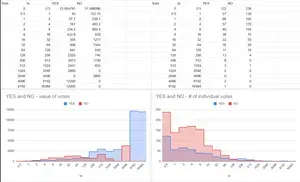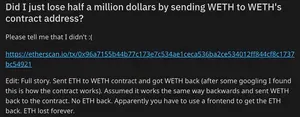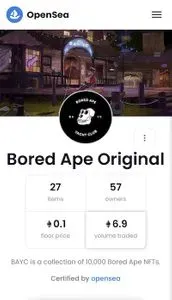All "iloveponzi"'s apes gone! Veteran hacker makes $700,000 stealing and flipping big name NFTs
Tax season begins to hit crypto Reddit hard
Questions like "How can crypto be a viable currency if every transaction is taxed?" are beginning to pop up as well, and more than a few commenters have described their plans to not report any of their crypto activity — certainly a wise thing to be discussing on a public Internet forum.
Streamer Ice Poseidon admits to scamming his followers out of $500,000 with his "Cxcoin" made for streamers
On January 31, 2022, a YouTuber named Coffeezilla released a video in which he confronted Denino about his actions and urged him to return the money to his fans who'd bought in on the project. Denino replied, "I could give the money back, it is within my power, but I am going to look out for myself and not do that." According to Coffeezilla, Denino took a total of $200,000 from the token's presale, $250,000 that was earmarked for marketing, and $300,000 from the liquidity pool. In the end, Denino pocketed around $300,000 and his developers took around $200,000. After realizing that Coffeezilla would be releasing the interview, Denino promised to "use the buyback function to put 155k into the liquidity" — which turned out to mean 155,000 BNB rather than dollars, roughly equivalent to around $40,000.
- "This Famous Livestreamer Stole $500,000 From His Fans", video by Coffeezilla
- Tweet by coffeebreak_YT
Someone starts selling colors on the blockchain, because why the hell not I guess
Qubit continues to try to tempt the attackers who stole $80 million to return it, with increasingly-desperate messages
Wonderland protocol founder writes that the "Wonderland experiment is coming to an end", despite vote ongoing and majority of participants voting to continue
By raw numbers it appeared most investors opposed the idea, as many will receive miniscule amounts compared to their initial investments. However, the larger holders (most of whom bought in at low prices) stand to make money from the liquidation and some have supported winding down. Because the DAO voting operates in a plutocratic model, where people can vote based on how many tokens they hold, at one point votes from a relatively small number of whales were trending the vote towards supporting winding down even though 90% of individuals wanted the project to continue. The votes to continue had begun to beat out the votes to wind down when Daniele Sestagalli announced on Twitter on January 30, before the vote's scheduled end, that the "Wonderland experiment is coming to an end."
Ultimately, Sestagalli ended up respecting the wishes of the community, who decided to continue the project despite having lost 90% of their money, presumably in hopes of regaining some of the losses.
- "Wonderland votes out QuadrigaCX co-founder Sifu and is considering shutting down", The Block
- "Wind down Wonderland, and give the treasury back to its holders?" vote on Snapshot
- "ELI5 - Explain to me like I'm 5" - The consequences of WIP #4" post on r/WonderlandTIME
- "What is really happening with the vote" post on r/WonderlandTIME
- Tweet by danielesesta
Justin Bieber "buys" a Bored Ape for $1.3 million in a deal that is shady in one of two possible ways
Trader loses $510,000 trying to convert funds between two currencies
Transaction history on Etherscan shows they were the 265th person to make this mistake. Most people did so with far smaller amounts of WETH, although another unfortunate trader lost 115 WETH (at the time valued at $360,000) on August 11, 2021. A total of 432 WETH has been irretrievably lost to this contract this way since July 2018 — currently valued at $1.1 million.









